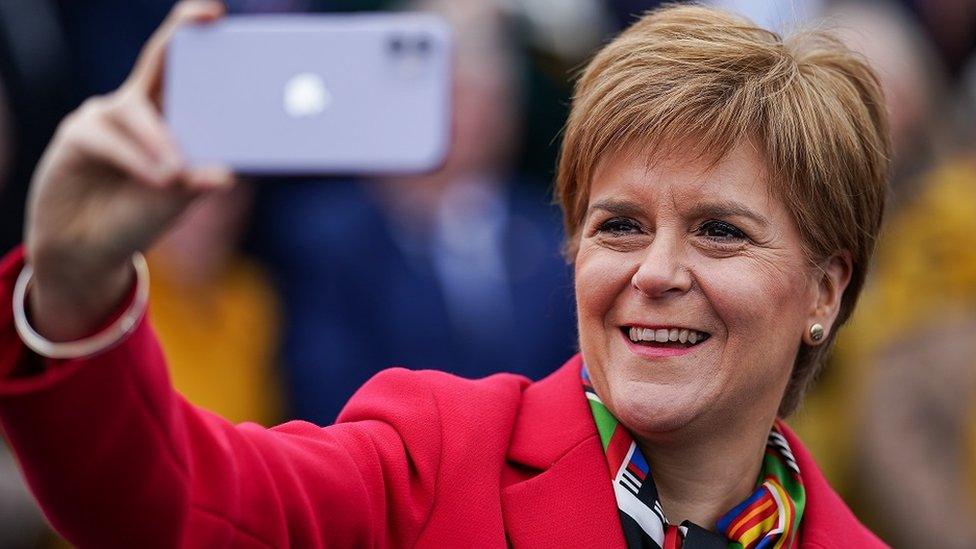General election 2019: Hart gets Welsh post in government reshuffle
- Published
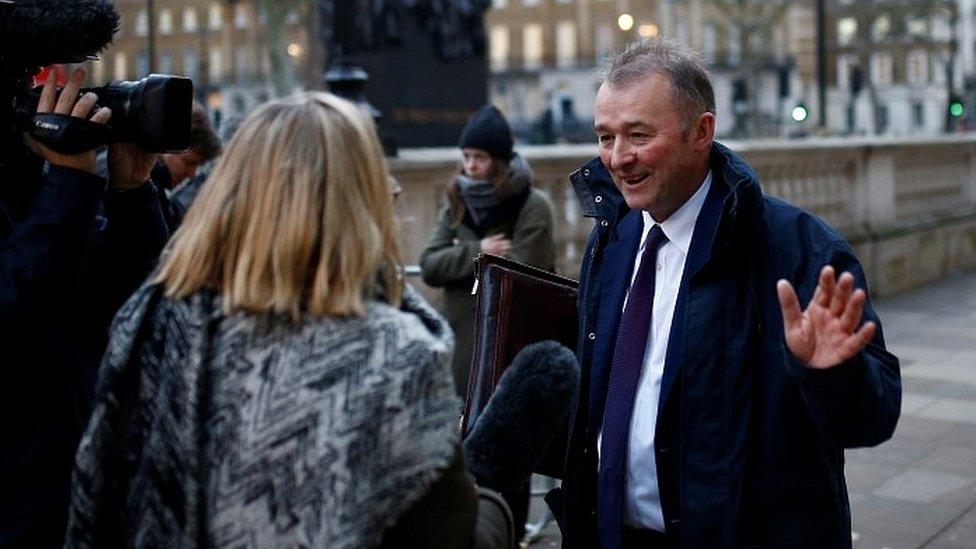
Simon Hart said he had been given an amazing opportunity
Boris Johnson is carrying out a limited reshuffle of his government after urging newly elected Tory MPs to "change our country for the better".
Simon Hart has been named as Welsh secretary, replacing Alun Cairns, who quit at the start of the election.
And Nicky Morgan stays as culture secretary, despite standing down as an MP. She is taking a peerage and will sit as a cabinet minister in the Lords.
Opposition parties said she had been "rewarded for political sycophancy".
But Ms Morgan, who will be in charge of broadband and media policy, suggested she might only be in the role for a few weeks - pending what are expected to be far-reaching changes to the PM's top team after the UK has left the EU on 31 January.
Allow X content?
This article contains content provided by X. We ask for your permission before anything is loaded, as they may be using cookies and other technologies. You may want to read X’s cookie policy, external and privacy policy, external before accepting. To view this content choose ‘accept and continue’.

Most cabinet ministers - including Chancellor Sajid Javid, Foreign Secretary Dominic Raab and Home Secretary Priti Patel - are staying put following the Conservatives' election victory. They have only been in post since July, when Mr Johnson became PM.
There has been unconfirmed speculation that the PM is contemplating a much bigger shake-up in February, including changes to a number of departments, including the Department for Exiting the European Union, the Home Office and Department for International Development.
Ms Morgan took many by surprise when she announced that she would not be standing as MP for Loughborough at the election.
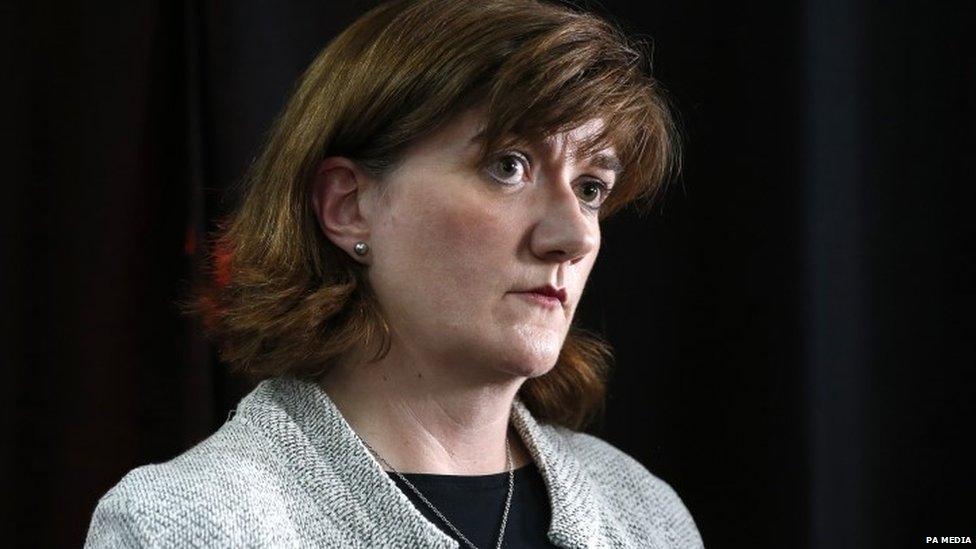
Nicky Morgan stood down as MP for Loughborough at the general election
However, the former education secretary - who cited the abuse that female MPs had received as one of the reasons for her standing down - was one of Mr Johnson's most visible backers during the campaign, prompting speculation she intended to remain in public life.
And the news that she has accepted a life peerage and will remain in cabinet has attracted criticism.
Liberal Democrat culture spokeswoman Layla Moran said only an elected Upper Chamber would stop "this kind of sycophancy being rewarded" while Labour's Jo Stevens said the appointment was "absolutely disgraceful".
Allow X content?
This article contains content provided by X. We ask for your permission before anything is loaded, as they may be using cookies and other technologies. You may want to read X’s cookie policy, external and privacy policy, external before accepting. To view this content choose ‘accept and continue’.

While it is rare for cabinet ministers in charge of government departments not to be in the elected Commons, both the transport and business briefs were held by peers in the last Labour government.
The choice of Simon Hart as Welsh secretary marks a big promotion for the 56-year old MP, who was previously a junior Cabinet Office minister.
Reacting to his appointment, Mr Hart said: "It's great to have this opportunity. I've got my orders and I'm going to try and do it as best I can."
The Welsh post has been vacant since early last month, when Alun Cairns quit over claims he knew about a former aide's role in the "sabotage" of a rape trial.
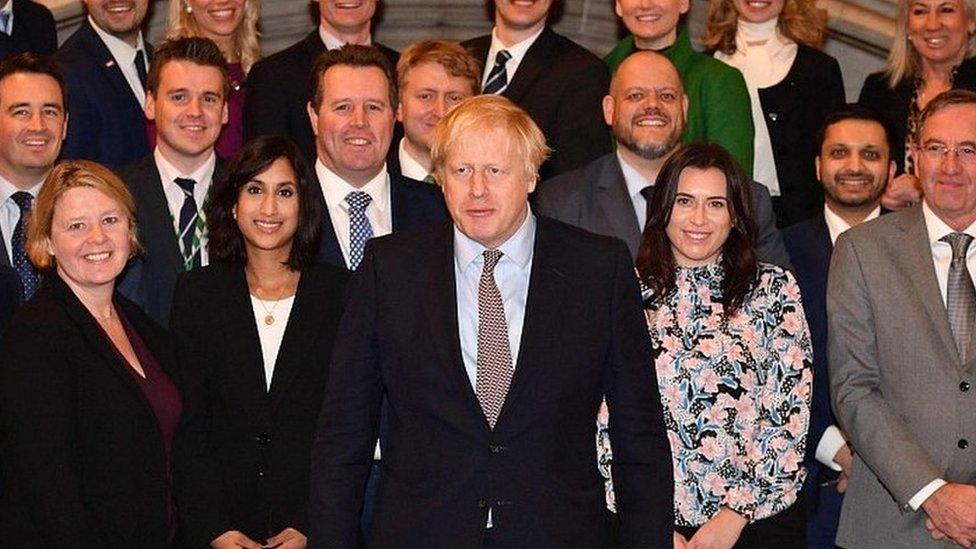
The PM has welcomed the new Conservative MPs to Westminster
Mr Hart and Ms Morgan both backed Remain in the 2016 referendum but have been strong supporters of the PM's Brexit deal.
Mr Johnson has been getting down to business following last week's election victory, speaking to foreign leaders, including US President Donald Trump, and addressing all Conservative MPs at a private meeting in Parliament.
Earlier, he hailed the "incredible achievement" of the 109 Tory MPs elected for the first time last week, including many representing areas that had previously been die-hard Labour territory.
"You've come from places that the Conservative Party have not been represented for a hundred years, if ever," he said at a photo call in the Palace of Westminster. "That's a fantastic tribute to you.
"But it also shows what we've got to do now because you have not only changed the political map of this country but you've changed our party for the better. What I want to do now is work with you to change our whole country for the better and that is what we're going to do."

SCROLL AND SEE: The results that sealed it, external
ALL YOU NEED TO KNOW: The night's key points
MAPS AND CHARTS: The election in graphics, external
BREXIT: What happens now?
WHO WON IN MY CONSTITUENCY? Check your result, external

Downing Street has said the government plans to ask the new Parliament to have its first debate and vote on the PM's withdrawal agreement - the legislation needed to ratify Brexit - on Friday.
A spokesman said it planned to start the process of getting the Withdrawal Agreement Bill through Parliament in the "proper constitutional way".
With a Commons majority of 80, the PM is expected to get the bill into law with few changes in time for the UK to leave the EU on 31 January.
Before that, the PM will set out his legislative plans for the year ahead in a Queen's Speech on Thursday.

What will happen this week?
Tuesday
Proceedings begin when MPs gather for their first duty: to elect the Speaker, Sir Lindsay Hoyle, who replaced John Bercow in November. Technically, MPs can hold a vote on this motion but this has never happened in practice.
Later in the day, the Speaker will begin the process of swearing in MPs, who are required to take an oath of allegiance to the Crown, or, if they object to this, a solemn affirmation. Those who speak or vote without having done so are deprived of their seat "as if they were dead" under the Parliamentary Oaths Act of 1866.
Two to three days are usually set aside for this process.
Thursday
The state opening of Parliament. The Queen's Speech is the centrepiece of this, when she will read a speech written by ministers setting out the government's programme of legislation for the parliamentary session. A couple of hours after the speech is delivered, MPs will begin debating its contents - a process which usually takes days.
Friday
Depending on how rapidly Boris Johnson wants to move, the debate on the Queen's Speech could continue into Friday.
The government will introduce the Withdrawal Agreement Bill - the legislation that will implement Brexit - to Parliament.
MPs in the previous Parliament backed Mr Johnson's bill at its first stage but rejected his plan to fast-track the legislation through Parliament in three days in order to leave the EU by the then Brexit deadline of 31 October.
After the debate on the Queen's Speech is concluded, MPs will vote on whether to approve it. Not since 1924 has a government's Queen Speech been defeated.

- Published23 January 2020
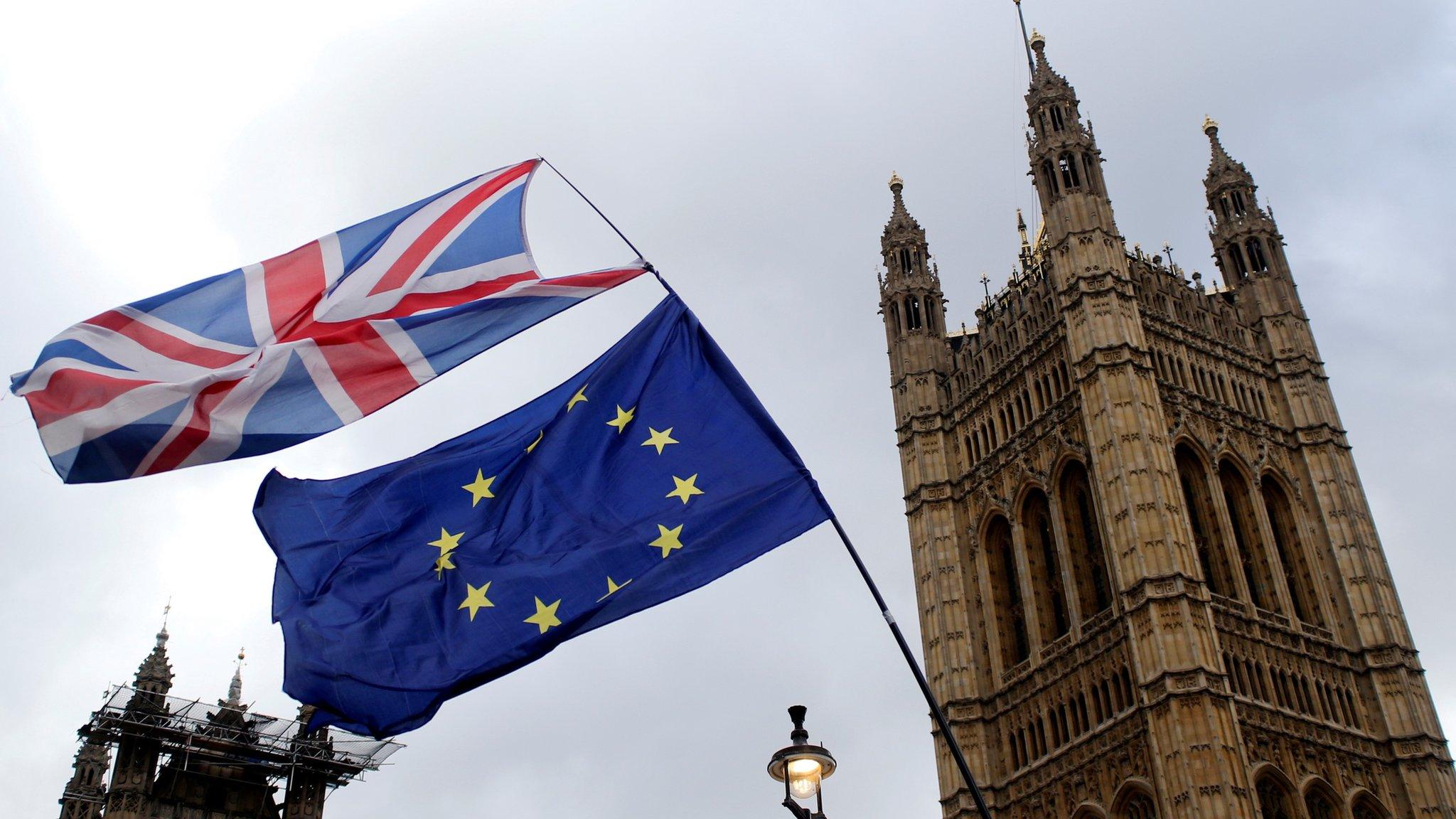
- Published13 December 2019
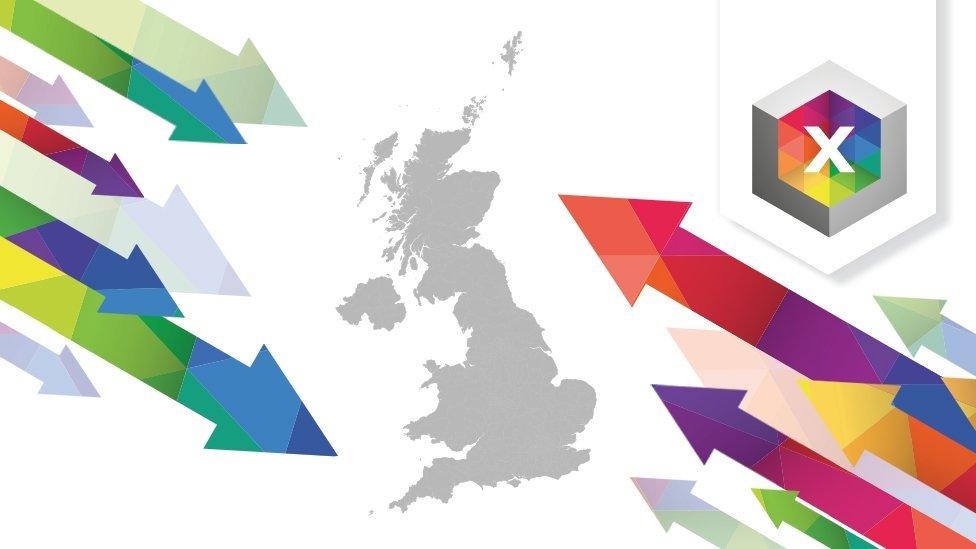
- Published13 July 2020
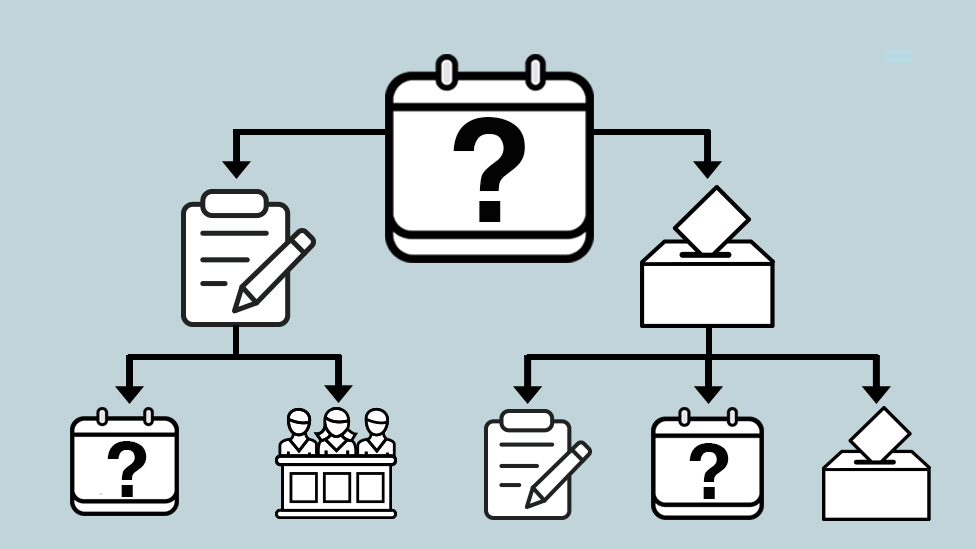
- Published15 December 2019
- Published15 December 2019
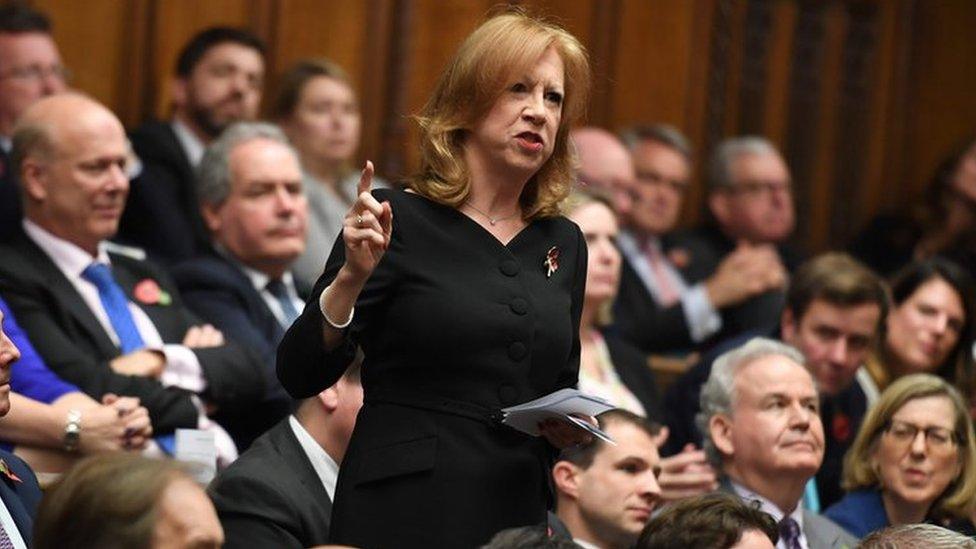
- Published18 November 2019
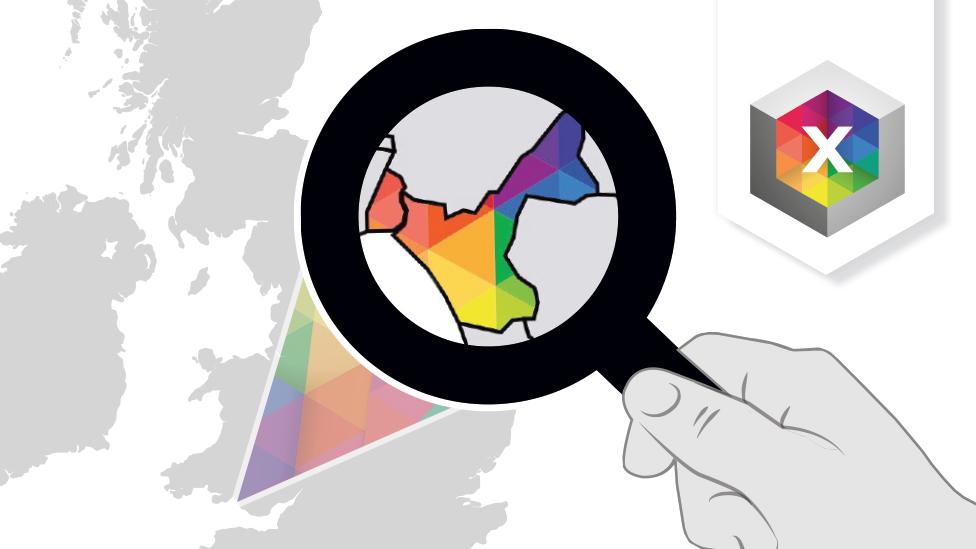
- Published15 December 2019
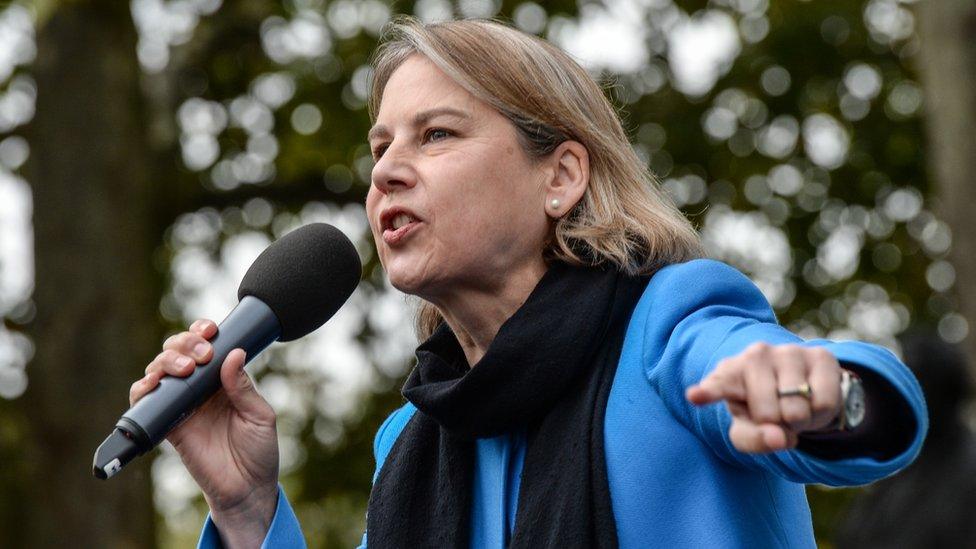
- Published15 December 2019
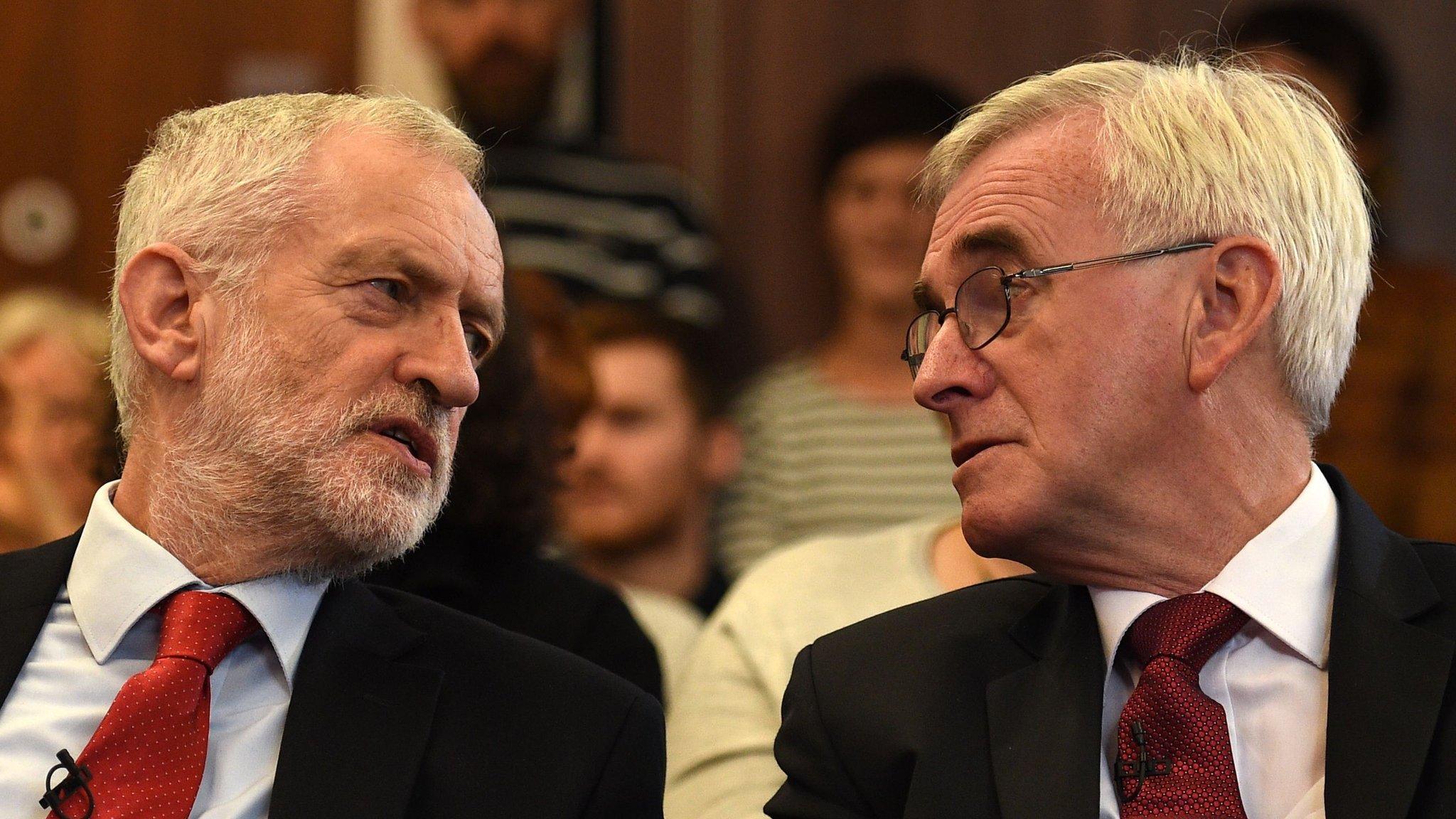
- Published15 December 2019
